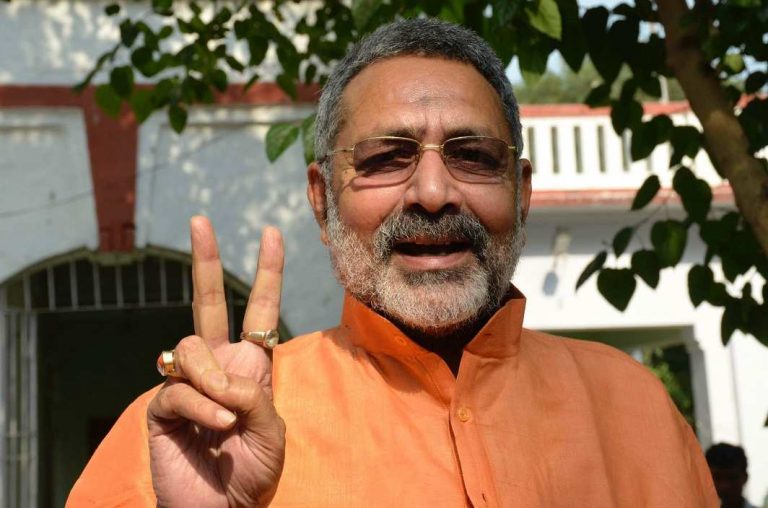
The Law Commission’s recommendations on hate speech and the Apex Court hearing on free speech revive an old debate
~By Venkatasubramanian
It is not as if our laws are insufficient to tackle hate speech. The Supreme Court had, in one case in 2014, identified as many as nine enactments with relevant provisions, dealing with hate speeches and controlling them. But the implementation of these provisions is so lax that the Court itself in that case pleaded helplessness in making them effective, and referred it to the Law Commission to suggest suitable remedies.
Ironically, Justice BS Chauhan, who presided over that Supreme Court bench (Pravasi Bhalai Sangathan v Union of India), found himself being given the responsibility to answer that reference as he is now chairman of the Law Commission.
In its report (No 267), released in March, the Law Commission defined hate speech as an incitement to hatred primarily against a group of persons defined in terms of race, ethnicity, gender, sexual orientation, religious belief and the like (Sections 153A, 295A read with Section 298 Indian Penal Code).
The Law Commission observed in its report: “Hate speech poses complex challenges to freedom of speech and expression. The constitutional approach to these challenges has been far from uniform as the boundaries between impermissible propagation of hatred and protected speech vary across jurisdictions. A difference of approach is discernible between the United States and other democracies. In the United States, hate speech is given wide constitutional protection; whereas under international human rights covenants, and in other western democracies, such as Canada, Germany, and the United Kingdom, it is regulated and subject to sanctions.”
The Law Commission thus suggested insertion of new sections—Section 153C (Prohibiting incitement to hatred) and Section 505A (Causing fear, alarm, or provocation of violence in certain cases).
Section 153C, according to the Bill proposed by the Commission, says: “Whoever on grounds of religion, race, caste or community, sex, gender identity, sexual orientation, place of birth, residence, language, disability or tribe a) uses gravely threatening words either spoken or written, signs, visible representations, within the hearing or sight of a person with the intention to cause, fear or alarm; or b) advocates hatred by words either spoken or written, signs, visible representations, that causes incitement to violence, shall be punishable with imprisonment of either description for a term which may extend to two years, and fine upto Rs 5000, or with both.”

Section 505A, in the proposed Bill, states: “Whoever in public intentionally on grounds of religion, race, caste or community, sex, gender, sexual orientation, place of birth, residence, language, disability or tribe—uses words, or displays any writing, sign, or other visible representation which is gravely threatening, or derogatory;
(i) Within the hearing or sight of a person, causing fear or alarm, or;
(ii) With the intent to provoke the use of unlawful violence, against that person or another, shall be punished with imprisonment for a term which may extend to one year and/or fine upto Rs 5000, or both.”
The proposed Bill also seeks to amend the First Schedule of the Code of Criminal Procedure, with the list of cognizable offences, which are non-bailable, by adding the new Sections of 153C and 505A of IPC.
According to the Law Commission, the recent decisions of the courts show that India follows a speech protective regime as is in practice in the US and the courts are extremely cautious in restricting Article 19 of the constitution. The reason behind such a stance, the Commission reasoned, is the apprehension and fear of misuse of restrictive statutes by the State.
The Law Commission has also recommended amendment of the Model Code of Conduct by the Election Commission to include a provision that prohibits any kind of speech that promotes feelings of enmity or hatred between different classes of the citizens on grounds of religion, race, caste, community, or language, by a candidate or his agent or any other person with the consent of a candidate.
The Law Commission’s report, however, does not address concerns over hate speech on the internet. One can spread hatred through anonymity, and protect oneself from retribution, while subjecting others to vulnerability, according to an expert.
As the law stands, it is not possible to prevent hate speech on the internet, but can only limit the damage by expecting compliance with take down orders. The alternative remedy of shutting the internet down during a crisis is likely to have a disproportionate effect on legitimate speech. Seen in this context, the Law Commission’s recommendations for inserting new legal provisions without suggesting how to make the existing legal regime effective would appear inadequate.
The law, as has been pointed out by an expert on hate speech, has a detrimental impact on the freedom of expression, since it is often misused by the state or used by third parties to intimidate speakers.

